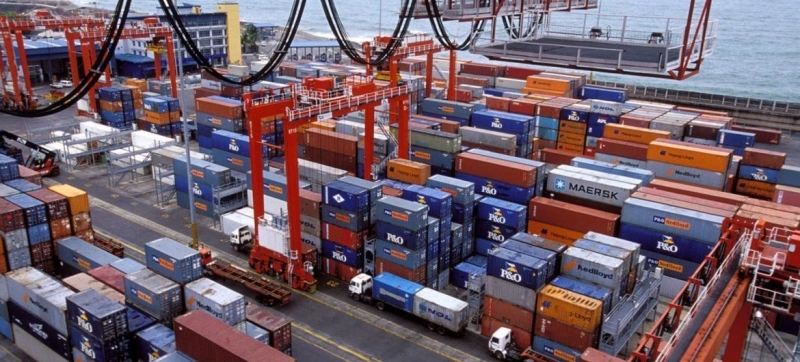
Containerized trade expected to grow 3.5 percent this year. UNCTAD: Geopolitical tensions threaten seaborne trade Economic developments
The global economy, food security and energy supplies are increasingly at risk along key shipping routes. The 2024 Review of Maritime Transport, released Tuesday by the United Nations Conference on Trade and Development (UNCTAD), shows that straits crucial to international commerce, such as the Panama and Suez Canals and the Red and Black Seas, are under significant strain. A combination of geopolitical tensions, climate change and armed conflict have shaken global trade, threatening the functioning of trade supply chains.
Seaborne trade, which grew 2.4 percent in 2023 to reach 12.292 million tonnes, has begun to recover from a significant contraction the year before, but the future remains uncertain. The report forecasts a modest two percent increase in 2024, driven by demand for bulk commodities such as iron ore, coal and grain, as well as goods transported in containers.
Containers and container ships
Trade in goods transported in containers, which grew just 0.3 percent in 2023, is expected to expand 3.5 percent this year. However, long-term growth will depend on how effectively the industry adapts to the ongoing disruptions caused by the war in Ukraine and rising geopolitical tensions in the Middle East.
Container ship supplies rose 8.2 percent in 2023. Disruptions to key commercial straits temporarily boosted demand for vessels by extending shipping routes, helping to alleviate excess capacity. However, if commercial shipping on key routes returns to normal, the imbalance between supply and demand could lead to a glut of container ships.
Panama and Suez Canals
Key shipping routes have experienced significant disruptions, leading to delays, rerouting, and higher costs. Traffic through the Panama and Suez Canals, vital arteries of global trade, has fallen by more than half from their peaks by mid-2024. This was due to low water levels in the Panama Canal caused by climate change and the escalation of the conflict in the Red Sea region, which affected the Suez Canal. The tonnage of ships transiting the Gulf of Aden and the Suez Canal fell by 76 and 70 percent, respectively, compared with the end of 2023.
UNCTAD Recommendations
With the maritime industry facing increasing challenges, the UNCTAD report calls for coordinated efforts in the areas of navigation and adaptation. In addition, experts recommend addressing strait disruptions, increasing investment in low-carbon, clean shipping, improving port efficiency and facilitating trade.
